Humans
Sign up for our newsletter
We summarize the week's scientific breakthroughs every Thursday.
-
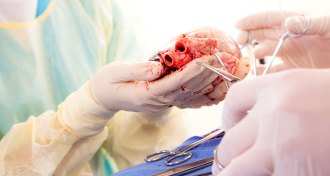 Health & Medicine
Health & MedicineOrgan waiting list policy benefits the wealthy, study charges
Wealthier patients can afford to get on more organ transplant lists, giving them an advantage, a new study says.
By Laura Beil -
 Health & Medicine
Health & MedicineSimple steps can offer health benefits
Studies find that even small changes in eating habits and movement can lower risk of heart disease.
By Laura Beil -
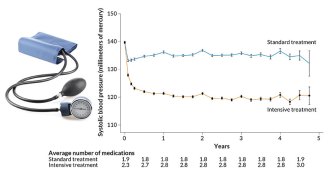 Health & Medicine
Health & MedicineDropping blood pressure to 120 lowers heart woes, data confirm
Aggressive treatment to lower systolic blood pressure to 120 reduces risk of heart attack, but causes some side effects.
By Meghan Rosen -
 Health & Medicine
Health & MedicineAntibodies to fight Alzheimer’s may have unexpected consequences
Alzheimer’s-targeted antibodies make neurons misbehave even more, a study of mice shows.
-
 Life
LifeGene editing helps a baby battle cancer
Doctors used molecular scalpels to tweak T cells to target leukemia but not harm the patient.
-
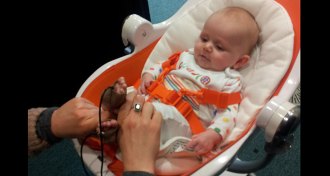 Health & Medicine
Health & MedicineYoung babies live in a world unto themselves
Young babies don’t let information from the outside throw off their touch perception, a finding that has clues for how babies experience the world.
-
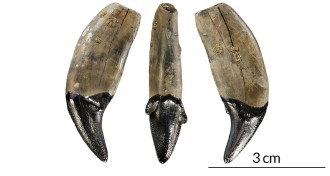 Anthropology
AnthropologyAncient hominids used wooden spears to fend off big cats
Saber-toothed cat remains suggest ancient hominids used wooden spears as defensive weapons.
By Bruce Bower -
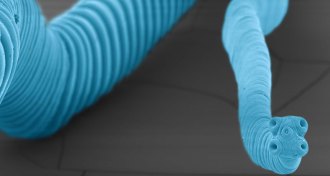 Health & Medicine
Health & MedicineParasite gives a man cancer
Tapeworms can kick parasitism up a notch to become cancer, a case in Colombia shows.
-
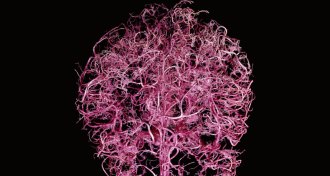 Neuroscience
NeuroscienceBlood exerts a powerful influence on the brain
Instead of just responding to the energy needs of neurons, the blood can have a direct and powerful influence on the brain.
-
 Anthropology
AnthropologyEarly globalization on display in history of Eurasian civilization
It was a long, strange trip from the first Eurasian farmers to the modern world.
By Bruce Bower -
 Psychology
PsychologyNo, cheese is not just like crack
Recent news reports claimed that a study shows cheese is addictive. But the facts behind the research show cheese and crack have little in common.
-
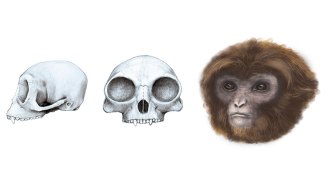 Anthropology
AnthropologyPetite primate fossil could upend ideas about ape evolution
Ancient fossils suggest modern apes descended from a small, gibbonlike creature.
By Bruce Bower